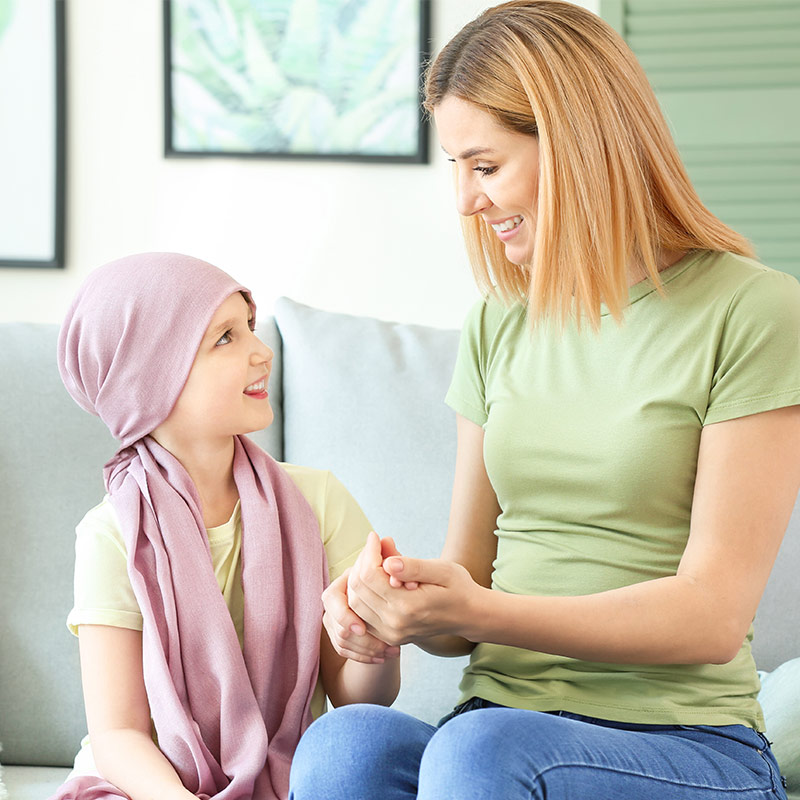We don’t stop caring for patients with cancer and their families once their treatment is completed. Its survivorship program supports their unique needs so they can thrive in school, at work and at play. We are proud to have an 80 percent cancer cure success rate, but our care doesn’t stop there.
Childhood cancer survivors are at risk for a variety of health problems due to the intense life-saving treatment they received. We know that about two-thirds of survivors will experience a late-effect, a chronic health problem that is a direct result of their cancer therapy.
Cancer treatment saves lives, by it also increases the risk of heart and respiratory disease, depression, severe dental problems, a secondary cancer and infertility.
We schedule yearly checkups with children to make sure that their primary cancer does not return and to also examine them for any other health issues. Our children and families see their oncologist, nurse practitioner, physical therapist, psychologist, nutritionist, pediatric dentist and social worker. These specialists work as a team to test, assess, educate and provide support to children and families.
Survivors’ Treatment Assessment and Resource (S.T.A.R.) Program
About 700 childhood cancer survivors are admitted to the Survivors’ Treatment Assessment and Resource (S.T.A.R.) Program each year. Our S.T.A.R. Program helps patients, who are no longer undergoing treatment, understand and manage the late effects of cancer therapy following surgery, chemotherapy and radiation. Patients receive assessments of any late affects they may have and are directed to services, treatment and community resources.
Patients who did not receive treatment at Jonathan Jaques Children’s Cancer Institute also can be referred to the S.T.A.R. Program by physicians, school nurses, health care professionals and other health-related community agencies.
Centers & Programs
Providing quality, compassionate care to children with cancer, sickle cell disease and other serious blood disorders through comprehensive psychological programs, research and clinical trails, a specially trained care team and survivorship programs.

